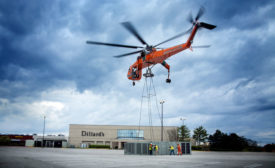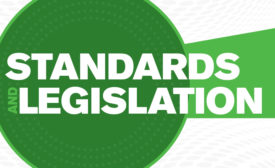Home » Department of Energy (DOE)
Articles Tagged with ''Department of Energy (DOE)''
HVAC regulations may receive a complete facelift under President Trump
Read More
HVAC Industry Prepares for Rooftop Regulations
New efficiency regulations set to go into effect in less than one year
January 23, 2017
AHRI Supports Nomination of Rick Perry to Head Department of Energy
His nomination signals hope for the future of HVACR regulations
January 12, 2017
DOE Funds Projects to Develop Electric Motor Innovations
This effort supports innovative approaches that will significantly improve the technology
December 8, 2016
Renovate America Welcomes DOE’s Best Practices for PACE Financing
Guidelines provide important framework for expanding pace industry nationwide
December 7, 2016
Copyright ©2024. All Rights Reserved BNP Media.
Design, CMS, Hosting & Web Development :: ePublishing





